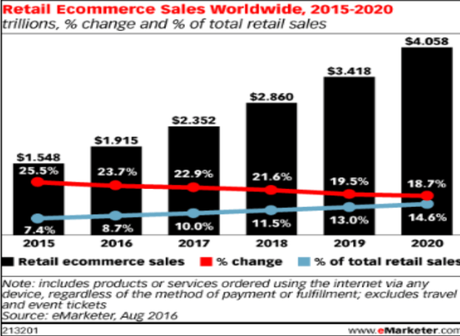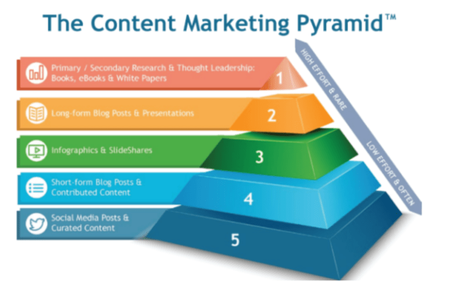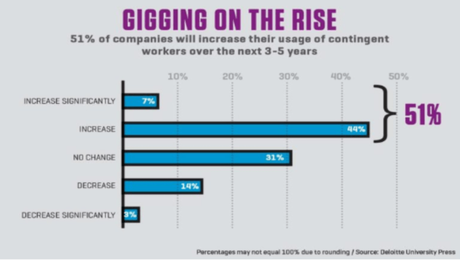The invention of the internet has allowed humanity to be more connected than ever before. Communication is now seamless and nearly instantaneous. Alongside this, the collective sum of humanity's knowledge is available to anyone with an internet connection and a smart device.
For innovators and entrepreneurs alike, the internet would appear to be a vast, nearly limitless marketplace for those brave enough to try. Thanks to the internet, users from all over the world have been able to easily communicate with one another.
What is E-Commerce?
Naturally, this has given rise to the invention of what is now known as e-commerce. Literally translated into electronic commerce, e-commerce refers to the buying and selling of goods and services over the internet. Due to the reach afforded by the internet, e-commerce allows sellers to reach out to a much larger market than would be traditionally available to them.

In the past, merchants had to travel far and wide in order to visit the great markets and ports of the world. This was a costly and time-consuming journey that would naturally be fraught with hazards of all kinds. However, with the internet, today's entrepreneur is able to market his/her goods and services to a global audience.
Hence in recent years, we've seen how e-commerce companies such as Amazon.com and Alibaba. com have changed the way we shop and think. From the rise of click-and-mortar stores to the democratization of entrepreneurship, it's safe to say that the e-commerce revolution is much more than just a trend.
Why is E-Commerce Important?

E-commerce has enabled businesses and individuals alike to revolutionize the way goods and services are being sold. Where in the past, international trade and business was the domain of MNCs, with e-commerce, even the humblest businesses are able to sell their goods and services on a global level.
Essentially, e-commerce has brought together both buyers and sellers while at the same time, presenting entrepreneurs with a variety of opportunities.
The Benefits of E-Commerce
One of the most important characteristics of e-commerce is the fact that it eliminates the need for a merchant to have a physical store. Previously, entrepreneurs would need to invest significant amounts of capital in order to purchase or rent a place of business. This often meant that the barriers for entry into any business were high which discouraged the entry of new enterprises.
Nowadays, with a digital storefront, business owners no longer need to invest in a physical store. In fact, e-commerce has enabled businesses to be operated purely online. For example, the NFL practically eliminated their physical stores, since their merchandise revenue - about $2 billion per year comes mostly from selling online. They have often online discounts and easy return policy, besides being completely optimized for mobile, which as consequence, helps to increase the NFL betting popularity.
Besides reducing the levels of investment required, e-commerce also helps drive down the costs of running a business. This is because digital stores are fully automated and do not need to be manned which eliminates the need to pay salaries or overtime to staff.
Unlike physical stores which have set operating hours, digital stores are open 24 hours a day, all year round, which means that customers are free to patronize your outlet at any time. Hence this is why many first-time entrepreneurs often choose to start online businesses.
Also, e-commerce businesses leverage on the connectivity offered by the internet. Thus allowing for smaller businesses to reach out to a significantly larger market. Sites such as Upwork allow freelancers to offer their services to clients from all over the world. By facilitating communication between freelancers and clients from all over the world, a freelance programmer operating in Sweden is able to sell his/her services to businesses based halfway across the world in Malaysia.
Hence via e-commerce, businesses are able to tap into a much wider set of talents then they would normally. Telecommuting means that entire teams may consist of multi-national members who may have never met one another. This access to talent from all over the world allows businesses to develop faster and more efficiently than ever before.
Developments we can expect to see in the future
The e-commerce industry is an exciting one which is set to grow at an exponential rate. While it's highly unlikely that online businesses will be able to overtake their physical counterparts, their contributions to the global economy should not be underestimated.
As the world advances forward and new technologies are discovered, businesses will no doubt shift with the times. Having sat down with several experts, we got the lowdown on what we can expect to see in the days to come.
1. Improvements on order fulfillment

Image courtesy of www.bizjournals.com
Online shopping is without a doubt extremely convenient. With just a click of your mouse, you'll be able to have goods shipped and delivered to your home. All of this from the comfort of your computer chair.
However, online shopping does have its own set of drawbacks. One of these being the time taken for orders to be fulfilled. This comes down to a variety of factors. Firstly, merchants usually do not have ready to stock on hand. Hence the time taken to order and have the products shipped.
Anyone who has ever shopped online can relate to the frustration of waiting to have their orders fulfilled. Alongside this, mistakes sometimes occur along the way which can result in your order being damaged or delayed.
Thus, e-commerce businesses such as Amazon have been developing methods of speeding up order fulfillment. These range from the cutting-edge to the downright creepy For example, Amazon's drone delivery service intends to allow for nearly instantaneous order fulfillment. From the moment you click the check-out button, your order is processed picked and delivered with a flying drone.
Should this idea come into fruition, the skies may soon be filled with flying drones delivering packages right to your doorstep.
2. Better customer service

Image courtesy of www.growthbusiness.co.uk
Great customer service is the hallmark of any successful organization. Typically, most customer service departments are only contacted when things go south. Consequently, most customer service interactions tend to be highly stressful affairs for both customer and service agent.
As we move towards the future, experts predict that organizations will soon switch over to face-to-face video communication. The highly impersonal nature of e-commerce transactions means that customers have a tendency to treat such businesses as just another faceless entity. This makes it difficult for organizations to develop relationships with their customers which leads to reduced brand loyalty.
With face-to-face video communications, customer-facing agents are able to leverage on the power of eye contact to engage with their customers. This approach provides a more personal touch to the customer service experience.
3. A focus on content-based marketing

Image courtesy of www.curata.com
Having opened the door for a new generation of entrepreneurs, e-commerce businesses are now struggling to differentiate themselves from one another. With the majority of us spending at least 130 minutes or 2 hours a day browsing social media, organizations are looking towards content-based marketing as a means of engaging with their customers.
Content-based marketing focuses on social media postings such as videos or articles that are indirectly related to a product or service offered by a company. For example, companies such as Buffer publish SEO (search-engine-optimized) articles on high-traffic sites in order to generate interest.
By consistently publishing high-quality content that was highly shareable, Buffer was able to generate significant interest in their brand. To this day, Buffer employs guest bloggers to continually produce engaging content on their various blogs.
4. Optimizing the customer experience

Image courtesy of www.thefanboyseo.com
Smartphones are truly wondrous devices which connect us to the rest of the world. Hence it should come as no surprise to see that nearly 40% of total e-commerce transactions were conducted from a mobile device.
Our mobile devices are with us everywhere we go, on the train, in the office and even on our vacations. Hence looking to leverage upon this, e-commerce businesses will likely turn to enhance the mobile buying experience.
Cart abandonment is a term which describes a customer who has failed to complete a transaction. From poor user experience to being enticed away by a competitor, there are plenty of reasons why customers abandon their carts.
As this writer can tell you, a poorly designed online store only serves to encourage cart abandonment. Slow, unresponsive websites or apps can result in a company losing a potential customer. On the other hand, a well-optimized shopping experience can net a successful sale and encourage repeat business.
Thus, it should come as no surprise that programmers and business leaders alike will be looking at ways to optimize the customer shopping experience.
5. The rise of the gig-based economy

Image courtesy of www.chiefexecutive.net
The gig-based economy refers to a collection of non-permanent employees who work on a freelance basis. As businesses look to optimize their operations further, they'll likely turn to the services of a freelancer. Usually, freelance workers are specialists in their chosen field and are available on a project basis.
This enables companies to hire skilled employees for specialized projects and tasks. With services offered by sites such as Fiverr and Upwork, we can see how e-commerce has changed the nature of recruitment.
Conclusion : 5 Things To Expect For the Future of E-commerce 2019 {Detailed Guide}
To sum up, E-commerce businesses have democratized the nature of enterprise for all of us. As the competition heats up, businesses vying for the advantage will need to think outside the box in order to remain competitive.

Benjamin Lee is a self-employed professional copywriter with nearly a decade of experience writing. Graduated from Monash University with a degree in Accounting and Banking and Finance.
Specialist in producing top-quality articles on cryptocurrency and finance. His articles have been featured in a variety of business and finance publications.


